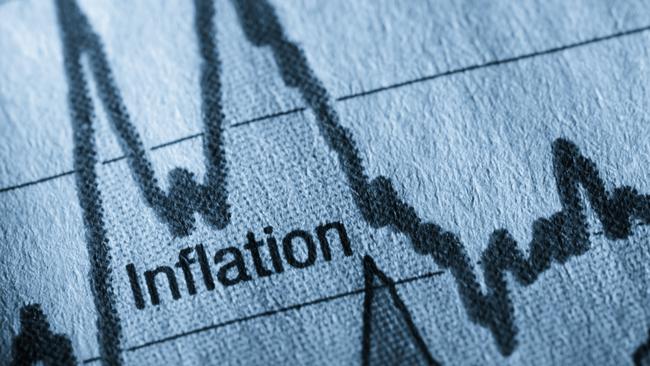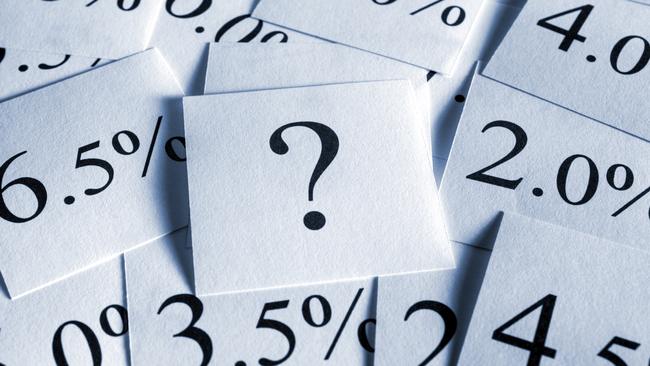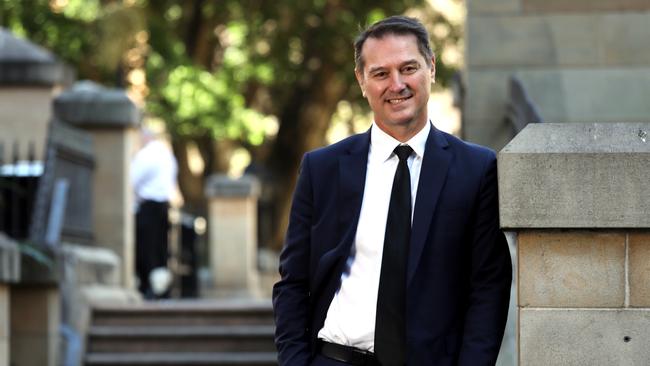The inflation trade is already underway
Investors and policy makers will need to think differently this time around with the inflation shift already underway.

All at once it seems the smartest people in the investment market are changing their minds on inflation, that great destroyer of investment returns and spending power.
What’s more, they have moved well beyond humdrum questions such as whether inflation is going to return. That’s answered already – inflation is here.
Rather, the top professional investors are now asking first: How long are we going to be confronted with rebounding inflation? And second, will it be different this time?
Nobody can answer the first question.
As for the second (will it be different to previous periods when rising prices caught the world by surprise?) The short answer is that you bet it will be different because, um, we have never had a peacetime situation where governments borrowed up to the eyeballs.
Serious investors are worried that the traditional mechanics deployed to tame inflation will not work like they did in the past.

Or to put that in market-speak: “It’s possible that as previous instances of inflation recede farther into the past, central banks could be complacent and perhaps overly comfortable in a scenario they think is a temporary surge but it proves to be the opposite,” as Philip Seager, head of quantitative investment solutions at Capital Funds Management, explains.
Persistent inflation when – or if – it comes to our shores is expected to originate in the US which just recorded a 4 per cent annual reading. Wall Street is still the epicentre of the investment markets and the Biden administration has just proposed a $US6 trillion budget stimulus plan which will create debts that exceed the level the US faced after World War 2.
Pre-Covid wage inflation had been threatening to lift and then the issue was put on ice as unemployment rose. Now with unemployment dropping against a background of supply bottlenecks, inflation in the US labour market is again a key signal.
That’s certainly the view of Sydney-based David Bassanese, the chief economist at BetaShares, who is working on an investor presentation titled “Sticker shock! How to position portfolios when inflation is rising”.
The conventional wisdom is that commodities, property, inflation-linked bonds and gold are the places to be when inflation begins to rise. In contrast we have always been told the places to avoid when inflation hits are cash, fixed interest bonds, and growth companies that have little pricing power or stocks where the “pathway to profit” is somewhere in the distance.
But Bassanese explains that in the same way the policy tools for fighting inflation have changed, so too have the investment options for beating it.
After all, the last time we had serious inflation there was not the mesmerising range of listed investment products we have now, the notion of green investing was marginal and cryptocurrency was no more than twinkle in the eye of Satoshi Nakamoto (bitcoin’s alleged creator).

Bassanese broadly agrees that value stocks may rebound and growth stocks may struggle and he confirms the price makers will beat the price takers, but then he demonstrates how new era inflation could really challenge some existing assumptions.
For example he believes commodities will rise – and that includes fossil fuels such as oil which until very recently have been struggling to find new investors.
Similarly, while conventional wisdom says property should do well under inflation, that’s referring to direct property (owning a house around the corner as an investment property).
Listed property trusts (A-REITs) are a whole different ball game and Bassanese thinks that any lift in bond yields (which will come with rising inflation) will hit the values of property trusts which have been used as proxy bonds by many Australian investors searching for income.
Perhaps the traditional inflation hedge most challenged under a new inflation scenario is gold. Because unlike previous cycles, this time around analysts suggest the yellow metal is competing with bitcoin as a place to put your money when faith in traditional government- issued fiat money starts to wane.
Many of the Australian investors who have bought cryptocurrencies such as bitcoin regard the allocation as a long-term hold. A long-term bet that it will somehow act as an inflation proof store of value in the way that gold has served this function for centuries.
As far as making money goes, bitcoin and gold have been something like the hare and the tortoise. Bitcoin has been dramatically more lucrative than the yellow metal though subject to wrenching sell-offs such as the 50 per cent slump earlier this month.
Gold on the other hand is steadily improving over all time periods – it’s up 56 per cent over five years or 10 per cent over one year with most of that achieved in the last month. Whichever way you play the potential threat of inflation is up to you, just don’t assume the playbook of the past is going to work this time round for either policy makers or individual investors.



